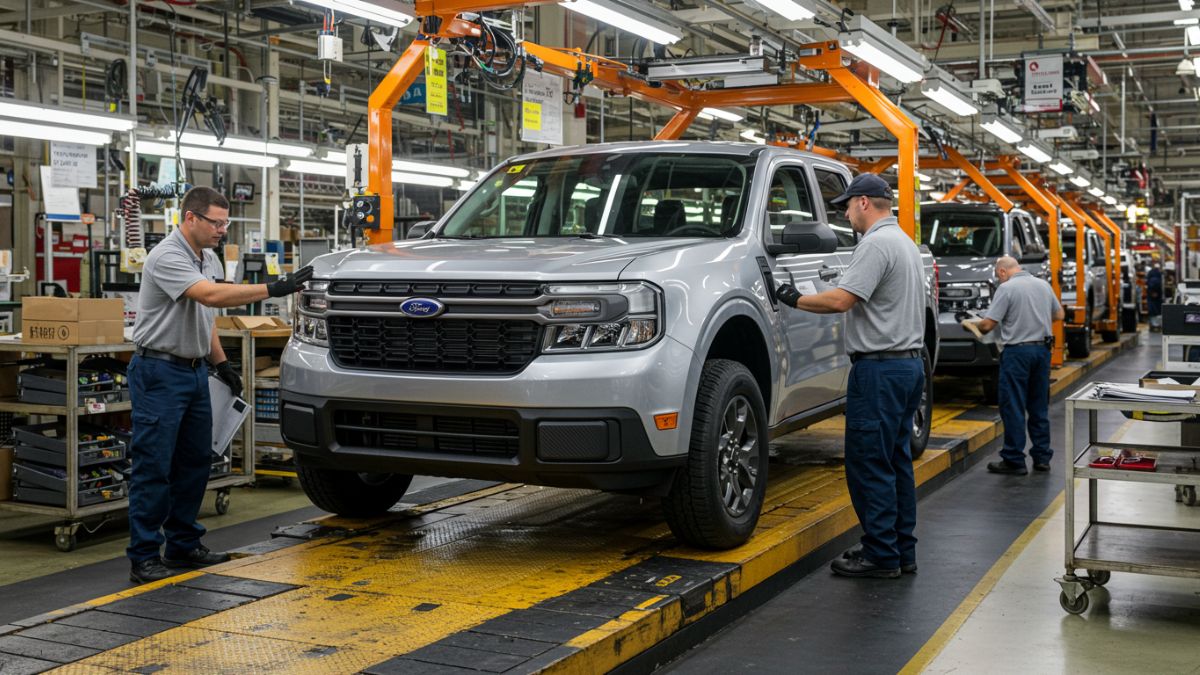In a major development for truck owners, Ford recalls hundreds of thousands of Maverick pickup trucks due to newly identified safety risks. The automaker recently issued a nationwide notice impacting a large portion of its popular compact pickup models, citing crucial system failures that could potentially endanger occupants. This decision underscores the brand’s continued effort to address mechanical faults before they result in more serious outcomes.
What Prompted Ford to Recall So Many Maverick Trucks?
The recall action stems from a series of mechanical and software-related issues discovered in select Maverick pickup trucks. According to internal testing and customer feedback, specific units demonstrated inconsistencies in braking responses and malfunctioning seatbelt restraints. In some cases, warning indicators also failed to alert drivers of possible hazards.
With more than 400,000 trucks under scrutiny, Ford recalls hundreds of thousands of Maverick pickup trucks to correct these defects and ensure customer safety moving forward.
Affected Models and Production Details
Ford’s recall targets Maverick pickups manufactured between July 2021 and March 2024. These trucks were primarily built at Ford’s assembly plant in Hermosillo, Mexico. Here’s what owners should know:
-
Model Years: 2022, 2023, and early 2024
-
Common Issues: Brake system malfunctions, faulty airbag indicators, and non-functional seatbelt sensors
-
Identification Method: Vehicle owners can check their 17-digit VIN (Vehicle Identification Number) on Ford’s official recall lookup page or the NHTSA website.
Owners of affected vehicles will be notified via mail or email and are urged to respond promptly.
Breakdown of Key Safety Issues
The main reason Ford recalls hundreds of thousands of Maverick pickup trucks is to address component failures that pose direct threats to vehicle occupants. These include:
-
Brake System Anomalies: Some trucks experienced delayed braking or sudden stops due to faulty control modules.
-
Airbag Warning Light Failures: Malfunctions in the software caused the alert system to miss deployment readiness problems.
-
Seatbelt Pre-Tensioner Issues: In specific impact scenarios, certain pre-tensioners failed to activate, potentially reducing protection levels.
Ford’s engineering team has already identified the causes and developed corrective procedures to be implemented during service appointments.
What Truck Owners Need to Do
For those wondering what steps to take now that Ford recalls hundreds of thousands of Maverick pickup trucks, here’s a clear action plan:
-
Check Recall Status: Visit Ford’s recall site or use the NHTSA’s recall database.
-
Contact Dealerships: Schedule a free service appointment with an authorized Ford service center.
-
Stay Informed: Look out for further communication from Ford regarding parts availability and service completion timelines.
There will be no charge for inspections or necessary repairs. Ford dealers have already started receiving updated replacement parts and software updates.
Ford’s Official Response and Customer Assurance
Ford released a statement confirming its awareness of the issues and reiterating its dedication to customer safety. The company emphasized that while no deaths or serious injuries have been linked to these defects so far, they are acting “out of an abundance of caution.”
As Ford recalls hundreds of thousands of Maverick pickup trucks, it hopes to not only resolve safety risks but also reassure customers of its long-term reliability. Ford has offered loaner vehicles to some owners and expanded hotline support to manage higher call volumes.
Industry Impact and Customer Reactions
This recall marks one of the larger safety campaigns for the Maverick brand since its introduction. Launched in 2021 as a compact, fuel-efficient truck, the Maverick has quickly gained popularity among city drivers and small business owners. However, large-scale recalls often cause hesitation among prospective buyers.
Automotive analysts have noted that while Ford recalls hundreds of thousands of Maverick pickups trucks, it is part of a broader industry pattern of proactive recalls. With modern vehicles relying heavily on electronic systems, early detection and correction of software bugs and mechanical flaws are becoming standard practices across brands.
The Bigger Picture: Vehicle Safety in 2025
Vehicle recalls are not uncommon, especially as automakers strive to meet stricter safety regulations and rising consumer expectations. The Ford Maverick’s issues highlight the need for continued investment in quality control and real-time performance data monitoring.
Ford’s swift response may help protect its brand image and improve customer satisfaction in the long run. Experts believe the automaker will double down on pre-release testing and cross-platform diagnostics for future models.
Resources for Affected Vehicle Owners
If you own a Maverick pickup and suspect it may be impacted, the following resources are available:
-
Ford Recall Center: www.ford.com/support/
-
NHTSA Safety Portal: www.nhtsa.gov/recalls
-
Ford Customer Service: 1-866-436-7332
-
Local Dealerships: Authorized Ford service locations are trained to handle this recall efficiently.
Responding early ensures your truck is safe to drive and compliant with current safety standards.
Conclusion: Ford Takes Responsibility as Maverick Recall Expands
As Ford recalls hundreds of thousands of Maverick pickup trucks, the automotive giant is clearly prioritizing customer safety and regulatory compliance. While the recall may be inconvenient for some, it reflects the company’s willingness to confront issues head-on.
If you own a Maverick, don’t delay — take advantage of Ford’s free inspection and repair services to keep yourself and your passengers protected. This proactive approach by Ford may well serve as a benchmark for how recalls should be handled in the future.











